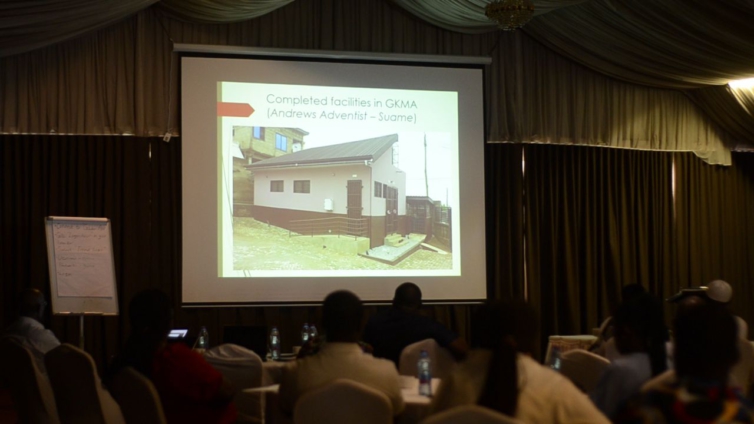Over 120 toilet facilities are expected to be handed over to public basic schools in the Greater Kumasi Metropolitan Area in November this year.
The initiative under the Sanitation and Water Project is to improve access to toilet facilities at the over 1,000 public primary schools in the region.
Accessibility to convenient toilet facilities still remains elusive to many communities across the country, especially in schools.

A 2017 report by the Ghana Education Service showed more than 7,400 public basic schools out of the over 20,000 lacked toilet facilities.
Out of the number, nearly 1,500 schools in the Ashanti region are without toilet facilities.
Under the Greater Kumasi Metropolitan Area – Sanitation and Water project, over 120 toilet facilities have been built for public basic schools in the metropolis awaiting commissioning in November.
The Project Coordinator of GAMA-GKMA Sanitation and Water Project, Ing. George Asiedu emphasised the need for accessing an improved toilet facility.

“If we are to achieve SDG 6, we must ensure that everyone has access to improved toilet facilities. We are working to provide household facilities to everyone,” he said.
Mr. Asiedu says the new facilities have user-friendly features for the physically challenged among other consumables to support girls during menstruation.
“The new toilet facilities have been made friendly for everyone including people with disabilities. At least 15-seater facilities have been built for each of the schools. Ladies can conveniently change their pads during their monthly flows,” he said.
To ensure the sustainability and maintenance of the facility, the Ministry of Sanitation and Water Resources held a three-day stakeholder forum with School Management Committees and Parent-Teacher Associations in the metropolis.

Programme Manager at the Sanitation Ministry, Charlotte Adjei advises a strict adherence to maintaining the facilities.
“It is important that school managers keep these facilities in good shape. This would help the girl child to have a sound mind for education during their periods. If these places aren’t kept well, the girls cannot access them,” she said.
The World Bank-funded initiative is aimed at providing household and institutional toilet facilities.
Latest Stories
-
Mahama appoints renowned Turkish-trained humanitarian as Ghana’s ambassador to Turkey
4 minutes -
Osu Mantse supports 2025 Absa Black Star marathon
17 minutes -
People in the newsroom must own GJA – Maxwell Kudekor
22 minutes -
GTA, African American Association of Ghana commemorate Juneteenth in Accra
26 minutes -
Greece to deploy frigates off Libya to curb increased migrant flows, PM says
39 minutes -
Malian court-appointed administrator meets Barrick Mining staff in capital as office reopens
50 minutes -
Russia and Mali sign trade deals, eye nuclear energy cooperation
1 hour -
Niger miners say output will continue at nationalised uranium mine
1 hour -
South Africa agrees $1.5bn World Bank loan to upgrade infrastructure
1 hour -
As gold prices surge, Gold Fields launch drones to detect wildcat miners
2 hours -
John Stones feeling ‘great’ after overcoming ‘dark days’
2 hours -
Man City’s Rico Lewis given further two-match ban
2 hours -
Botafogo reach Club World Cup last 16 at the expense of Atletico Madrid
2 hours -
Brentford set-piece coach Keith Andrews in line to be named manager
2 hours -
Ghana’s political decay was designed, its not accidental – Yaw Nsarkoh
3 hours

